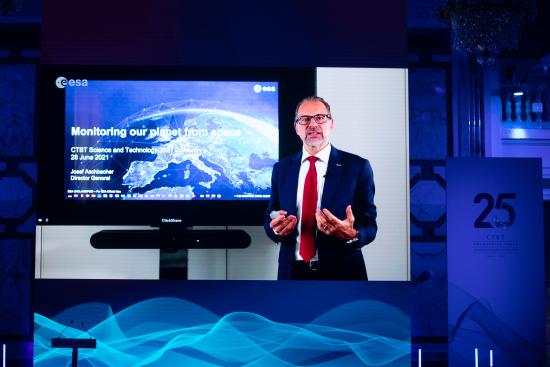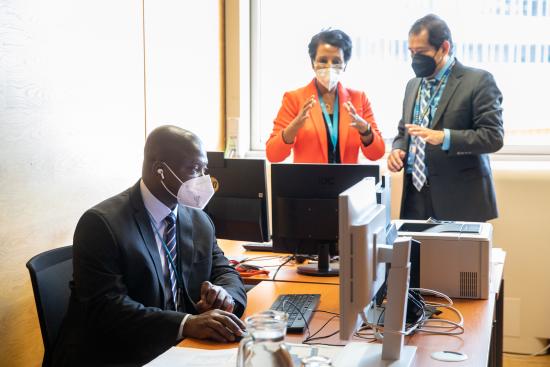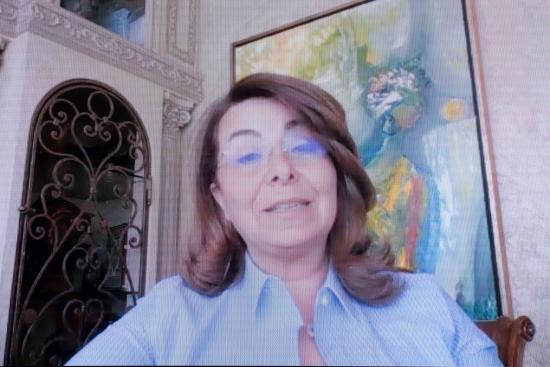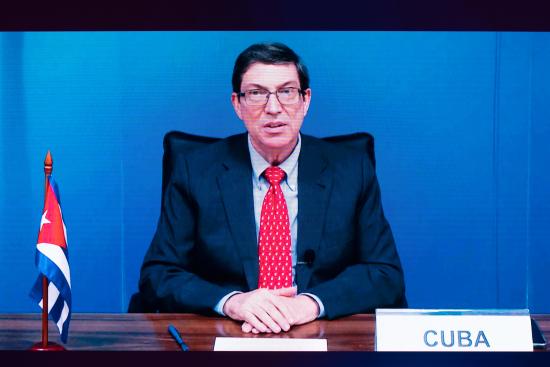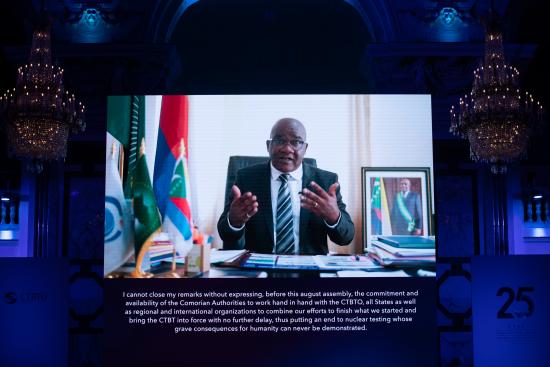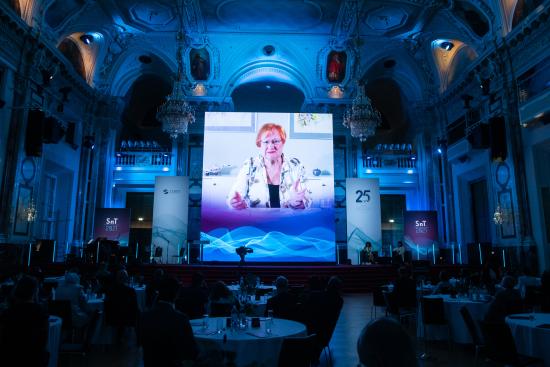Hybrid/virtual SnT2021 conference sees record attendance
Running from 28 June to 2 July, the sixth conference in the biennial SnT series had to adapt to COVID-19 restrictions with a mixture of hybrid and virtual sessions, enabling scientific, technical and policy experts, academics, students, journalists and civil society to join from every corner of the world. Over five days, more than 1,500 people tuned in to high-level messages, presentations, panel discussions, poster sessions and much more.
Over 1,000 participants connected remotely for the hybrid High-Level Opening, joining some 200 invited guests at Vienna’s historic Hofburg Palace. Speakers celebrated the achievements of the CTBT since it opened for signature on 24 September 1996 and looked ahead to its entry into force.
Addressing 21st century transboundary challenges requires us to lean on each other more, not less. It requires more sustained international cooperation and collaboration, not less. It requires more strong, credible, and capable institutions, not fewer.
“The CTBT continues to be a shining example of international technical cooperation as a driving force in global arms control efforts,” Zerbo said in his opening address. “It exemplifies the importance of science diplomacy in advancing the international peace and security agenda. It is more apparent than ever before that science-driven policy is the only way to create a more peaceful and prosperous world.”
UN Secretary-General António Guterres praised the achievement of the CTBTO’s International Monitoring System (IMS) in using modern technologies to build trust among countries.
“The System has become an indispensable tool in the global disarmament and non-proliferation regime, and its associated technologies also have vital civilian applications,” he said in a message read in Vienna by Ghada Waly, Director-General of the UN Office in Vienna and head of the UN Office on Drugs and Crime.
The CTBTO is one of the pioneers in using modern technologies. Its cutting-edge IMS helps to build trust among States about compliance with the Treaty.
Rafael Grossi, Director General of the International Atomic Energy Agency, stressed the CTBT’s essential place among international non-proliferation treaties, providing certainty that nuclear tests are not taking place.
Director General Li Yong of another Vienna-based international body, the UN Industrial Development Organization, said the pandemic was a call for solidarity and closer international cooperation, requiring multilateral solutions and best use of advanced technology, science and innovation.
The ban on nuclear testing is not a treaty of the past but a treaty of the future.
“The prohibition and ceasing of nuclear tests of any kind is crucial to achieving the goal of the complete elimination of nuclear weapons,” Cuban Foreign Minister Bruno Rodríguez Parrilla said.
Comorian Foreign Minister Dhoihir Dhoulkamal appealed to the international community to boost its efforts towards universal adoption of the CTBT as “this essential instrument of trust and stability”.
“The political will and commitment of all national actors to this end is the cornerstone that will turn this ideal into reality,” he said.
Rounding off the opening session, Ambassador Stephan Klement delivered a statement on behalf of the European Union’s High Representative and Vice President, Josep Borrell, in which he stressed the CTBT’s value not only for nuclear non-proliferation but a range of civil and scientific applications including the study of climate change, oceans and ecosystems, seismic activity and the prediction of tsunamis.
The CTBT is the best guarantee against nuclear proliferation and a nuclear arms race – it is multilateralism at its best.
It’s necessary to ensure full and meaningful participation of women in all policymaking, planning and implementation regarding peace security and disarmament.
The afternoon of the High-Level Opening kicked off with a keynote address by Dimitri Kusnezov of the U.S. Department of Energy on Artificial Intelligence and its potential role in monitoring for nuclear explosions.
A panel discussion on “Space science and technology for global sustainable development, peace and security” was chaired by Simonetta di Pippo, Director of the UN Office for Outer Space Affairs, and included a keynote by European Space Agency Director General Josef Aschbacher. Other speakers included two former astronauts: Brazil’s Science Minister Marcos Pontes and the first Western European in space, France’s Jean Loup Chrétien.
An EU-CTBTO panel on “Securing a nuclear-test-free world for youth and the next generations” rounded off the opening day.
A rich science and technology agenda
From 29 June to 2 July, a host of diverse technological and scientific panels explored issues under five main themes: the Earth as a Complex System; Events and Nuclear Test Sites; Verification Technologies and Technique Application; Performance Evaluation and Optimization; and CTBT in a Global Context.
A dedicated panel and a series of oral presentations over several sessions reflected on the experience of the COVID-19 pandemic as a stress test for systems including the IMS, which relies on continuous data gathering, transmission and analysis, and the lessons that can be learned from it.
Other highlights of the conference included sessions on how to communicate effectively on scientific uncertainties; using machine learning to detect explosions; science diplomacy education; science and technology for sustainable development, peace and security; debating the skills of ‘human vs. machine’ in data analysis; and the global challenges of hazard mitigation.
The SnT series of biennial multidisciplinary conferences, covering all aspects of the CTBT verification regime, is designed to further enhance the strong relationship between the scientific and technological community, policymakers and the CTBTO.
Click here to watch all video sessions on demand.
For more pictures see our Photostream here.
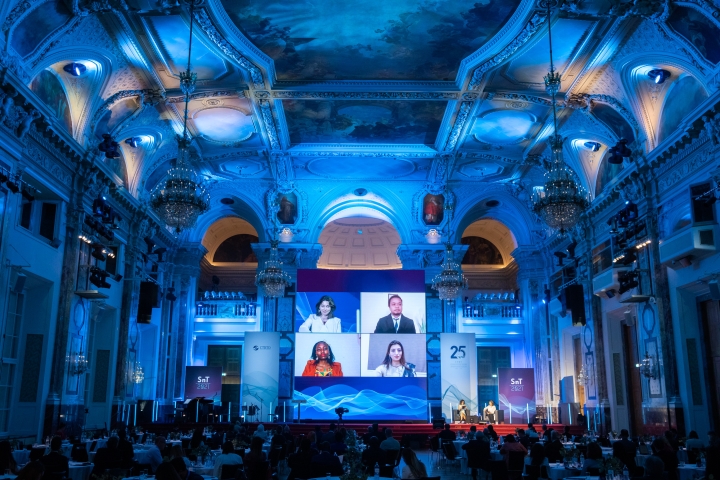
CTBTO Youth Group (CYG), underlining a strong youth engagement.

Dimitri Kusnezov of the U.S. Department of Energy.
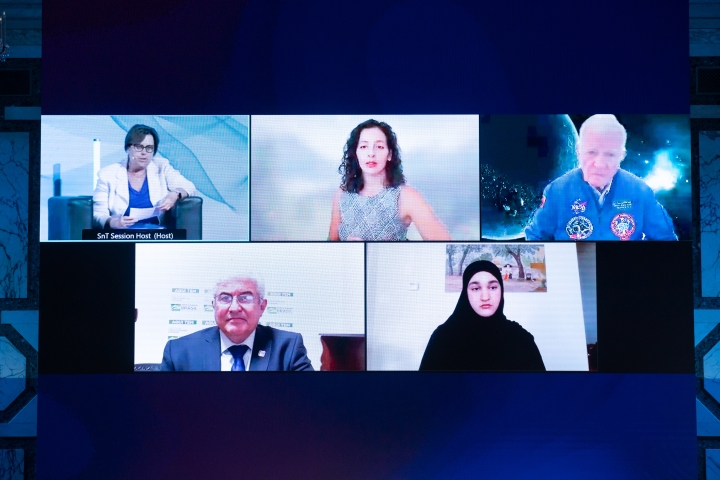
Panel discussion on “Space science and technology for global sustainable development, peace and security”.
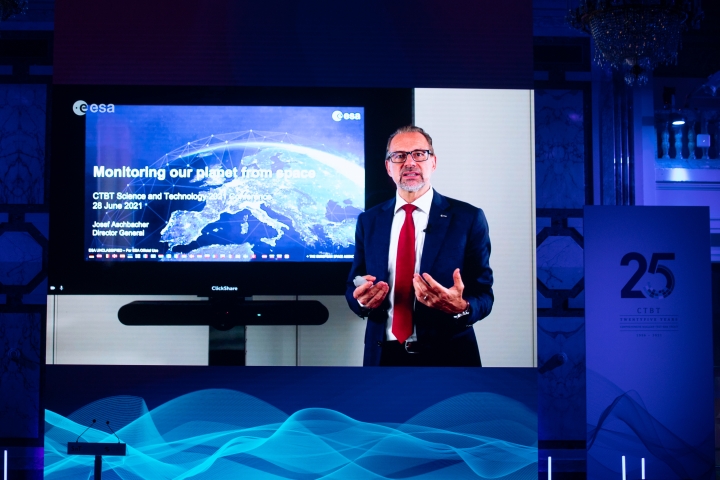
Josef Aschbacher, DG of ESA.
6 Jul 2021

Lassina Zerbo, CTBTO Executive Secretary at SnT2021.







Peter Launsky-Tieffenthal, Secretary General of Austria’s Foreign Ministry.

Director General Li Yong of the UN Industrial Development Organization.

Rafael Grossi, Director General of the International Atomic Energy Agency.

Bruno Rodríguez Parrilla, Foreign Minister of Cuba.

Dhoihir Dhoulkamal, Foreign Minister of the Comoros.

Ambassador Stephan Klement delivering a statement on behalf of the EU.

Ambassador Jaap Ramaker.

Ambassador Grigory Berdennikov.

Jenifer Mackby, Senior Fellow at the Federation of American Scientists.

Anne Strømmen Lycke, Chief Executive Officer of NORSAR.

Lord Browne of Ladyton, Vice Chairman, Nuclear Threat Initiative.

Ernest Moniz, CEO of Nuclear Threat Initiative.

Tarja Halonen, former Finnish President.

Ban Ki-moon, former UN Secretary-General.




